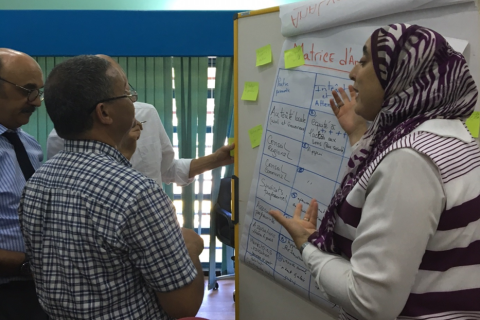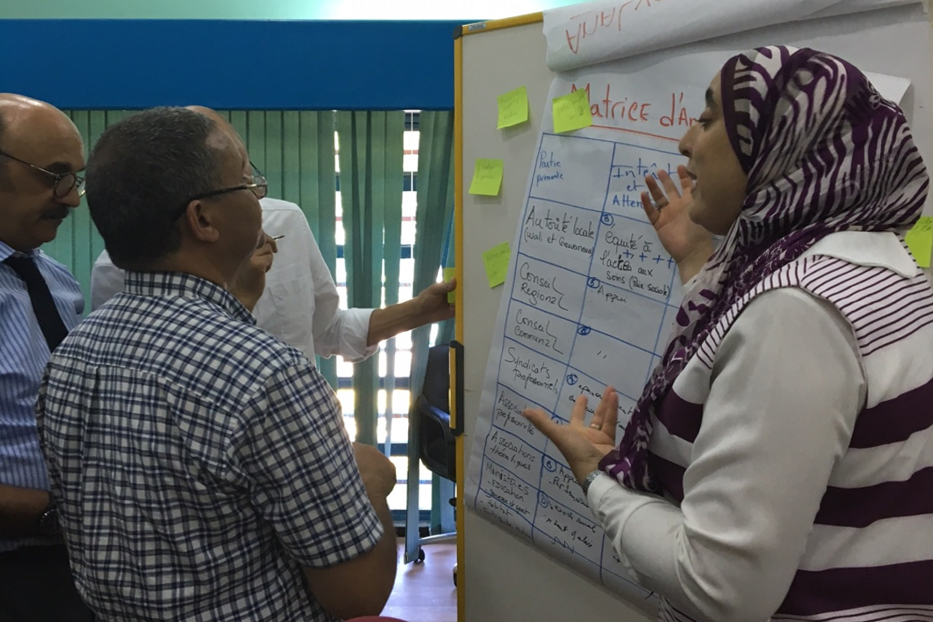
The Moroccan health system is managing a substantial amount of change: a countrywide demographic and epidemiological transition, as well as institutional change around the government’s implementation of “advanced regionalization”. A White Paper recommends that efforts to modernize health systems governance take this regionalization agenda into account and prepare stakeholders to work towards this new objective. Indeed, this is an opportunity for creativity, flexibility and decision-making at the local scale. Moreover, the 2012-2016 health sector strategy is coming to an end, and a new strategic plan was prepared in 2017 – an opportunity to strengthen the reform agenda. These reforms will be deployed in part at the regional level, ensuring convergence between the implementation of the strategic plan and the regionalization agenda.
The UHC Partnership roadmap for Morocco recommended a series of policy dialogues for 2017, to encourage this convergence and to ensure coherence in public policies. These were launched with a first Training and Consultation Workshop on the Policy Dialogue for Advanced Regionalization in the Health Sector, held in Rabat on July 6th and 7th, 2017.
The objectives of the workshop were to present the WHO framework for policy dialogue in the health sector, and to illustrate the different stages of a policy dialogue using practical examples from the region and abroad. The workshop was an opportunity for collaborative reflection with the Regional Directors on the need and the importance of policy dialogue for a regional implementation of the strategic plan, and on prerequisites for the dialogue’s success.
After reviewing the principal axes of the health sector strategy, as well as regulatory and operational frameworks for advanced regionalization, the Regional Directors were able to consider the challenges within the country’s health system that require regional policy dialogue. These centered on human resources, particularly the shortage of multi-skilled nurses, the organization of healthcare availability especially for maternal health, the care of people with special needs, and more generally the implementation of multi-region development plans, for instance in the country’s southern region. After selecting priority issues, the Directors reviewed each step of the regional implementation process for organizing and conducting a policy dialogue on the chosen issue area.
This exercise will serve as a starting point for the organization and roll-out of a formalized policy dialogue project in each region. The Ministry of Health and the EU-Luxembourg-WHO Universal Health Coverage Partnership will handhold regions that require additional support in this process.
